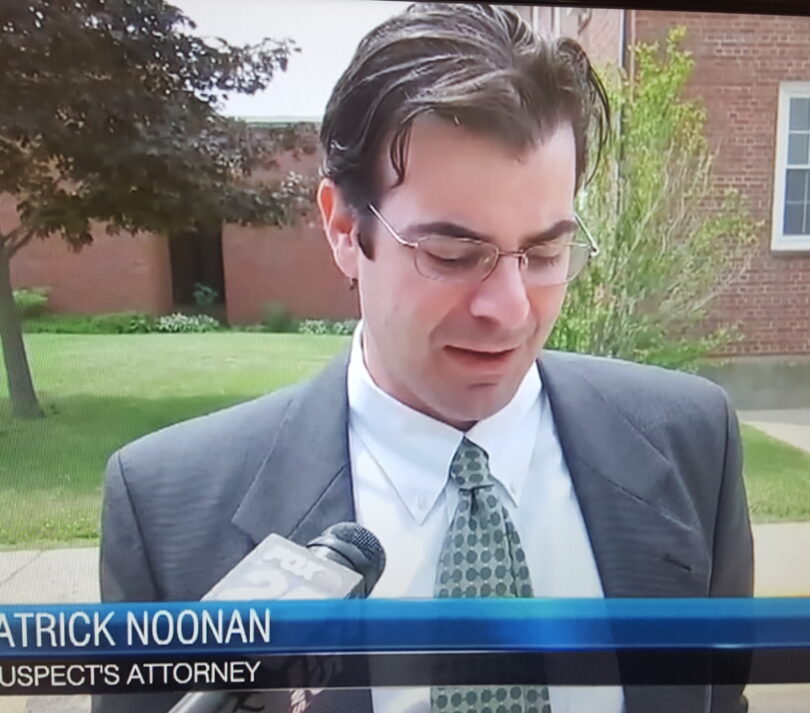There is no doubt that smoke detectors save lives. Most residential fires start in the early morning or late at night while residents are asleep. The U.S. Fire Administration has determined that one out of every three fatal home fires occurs between 12:00AM/Midnight and 5:00AM.
Negligent Landlords, Building Owners and Property Management Companies
In Massachusetts in 2014, approximately 25% of residential fire victims had no working smoke alarms to warn them. In 11% of these fires, smoke alarms were installed but but failed to operate.
Every second counts in a fire. Working smoke alarms can warn residents of a fire before it is too late to escape.
The National Fire Protection Agency recommends that smoke detectors be installed inside each bedroom, outside each sleeping area, and on every level of the home, including the basement. On ground floors, smoke detectors should be installed in the living room, den, family room, or den or near the stair to the upper levels of the home.
A good practice is to implement a maintenance schedule to check and replace batteries in smoke detectors twice a year when daylight savings time starts or finishes. This will ensure the device is functioning properly.
Massachusetts has strict rules, regulations and building codes that require working smoke detectors in houses, apartments, condos, rental properties, hotel, motels and other buildings. Landlords, building owners and property management companies can be liable for fire related injuries if they fail to install fire detectors or they fail to maintain fire detectors so they remain in working condition.
Product Liability and Defective Smoke Alarms
Most people think that smoke detectors are built and designed to detect smoke. However, most smoke alarms only detect heat. So every room in a house or building could be filled with smoke but a smoke detector might not ring the alarm unless enough heat is detected. In most cases it is too late to evacuate when enough heat reaches the smoke alarm to trigger the alert.
Most smoke detectors use one of two smoke detection technologies:
- ionization; or
- photoelectric technology.
The Defective Nature and Dangers of Ionization Smoke Detectors
The vast majority of smoke detectors that are sold and installed in the United States use ionization technology. These ionization smoke detectors are defective because they are only capable of detecting combustion particles which are found in a full flaming fire, flash fire or fast moving fire. Ionization fire alarms can not detect the slow moving, smoldering, smoky fires that usually burn in homes and residences in the early morning hours. These slow moving fires are the leading cause of fire related deaths in homes. These slow moving, smoldering fires produce toxic poison gas that can fill a house before a fire turns into a full flaming fire. These gases can kill residents before the fire does or they can render residents unconscious and incapable of escaping the house before the fire transitions into a full fire. Most people that purchase ionization smoke detectors are not aware that they are not effective at detecting slow burning, smoldering fires. The following is a list of some of the brands and manufacturers of ionization smoke detectors:
- Nest Protect
- Nighthawk
- Kidde
- BRK
- First Alert
- BKR
- United Technologies
- Fire Sentry
Photoelectric smoke detectors are only found in 1 out of every 10 buildings. These detectors use a beam of light that is capable of detecting smoke.
Injured by a Fire or Smoke Inhalation Due to a Defective Smoke Detector in Massachusetts?
If you or a loved one has been injured by a defective smoke detector, then call the smoke alarm lawsuit lawyers at The Law Offices of Gerald J. Noonan today. We have a proven track record with over 35 years of legal experience. Our defective smoke detector lawyers have successfully represented victims of fires for decades and we are ready to take on your case today.
Our knowledgeable and experienced Greater Boston Car Accident Lawyer at The Law Offices of Gerald J. Noonan are available to assist clients throughout all of Southeast Massachusetts, including but not limited to Plymouth County including Brockton, Plymouth, Bridgewater, Marshfield, Hingham, Duxbury, Wareham, Abington, Rockland, Whitman, Hanson, Holbrook, Middleborough; Norfolk County including Quincy, Stoughton, Dedham, Weymouth, Braintree, Avon, Holbrook, Randolph, Canton, Sharon, Brookline, Franklin; Bristol County including New Bedford, Fall River, Taunton, Attleboro, Mansfield, Westport, Dartmouth, Easton, Raynham, Lakeville, Norton; Cape Cod, Hyannis, Falmouth, Barnstable and the Greater Boston area including Cambridge, Somerville, Medford, Everett, Lawrence, Lynn, Revere, Dorchester, Roxbury.




